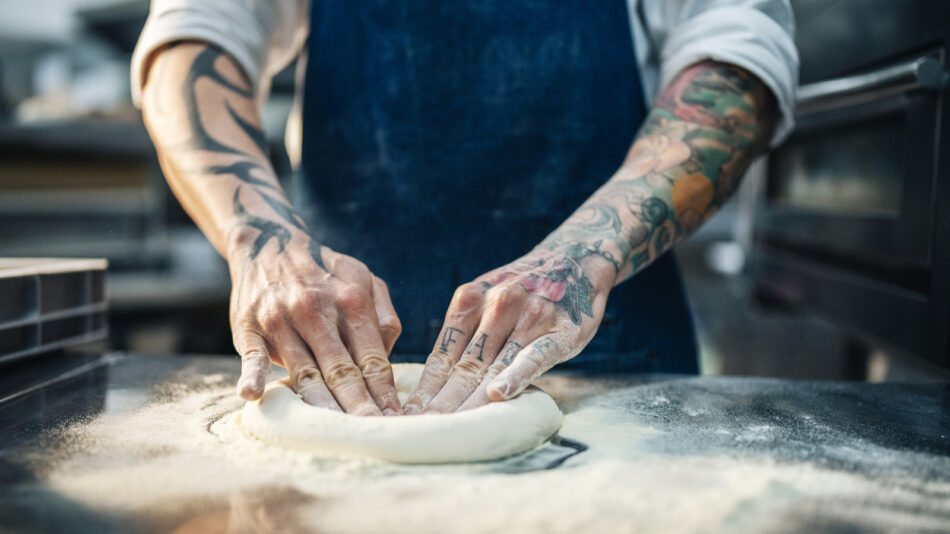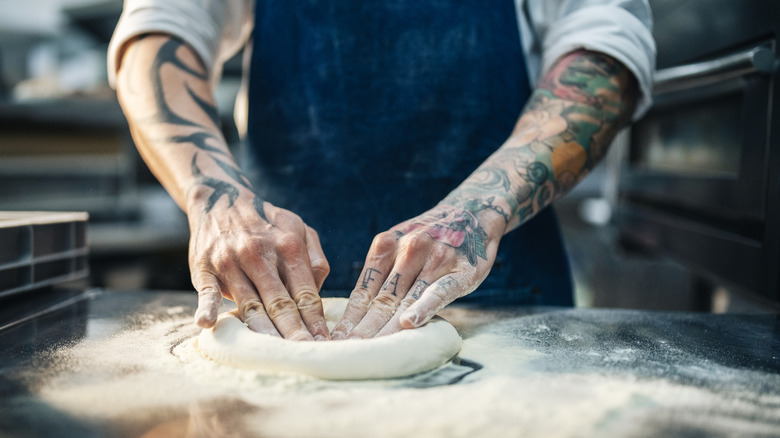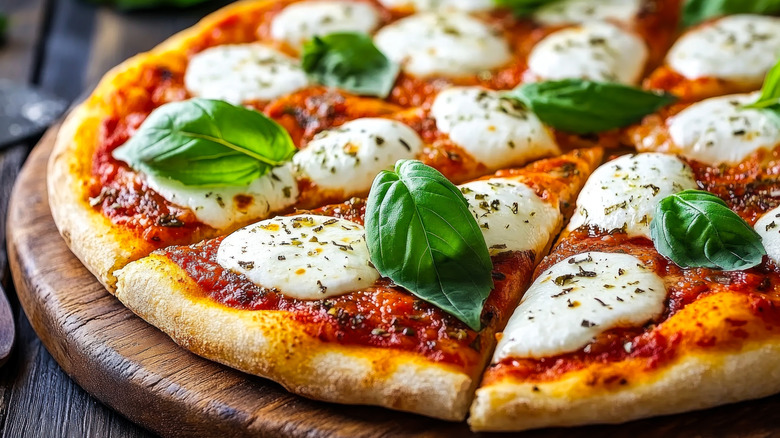There are a couple of kinds of amateur pizzaiolos: Those who twirl a frozen number into the oven and call it cooking, and those who are always ready to toss the dough like a regular Luigi Primo. Even for folks in the latter camp, perfecting those pies can be a yearslong pursuit. There are just too many potential paths to spectacular scratch-made tomato sauce, peak cheese blends, and the best pizza crust for many of us to follow in a lifetime. So, Chowhound tapped Mike Fadem, chef and owner of Ops in New York City, for a little help rising to that last occasion.
Most pizza dough recipes call for you to combine some amalgam of flour, water, yeast, salt, and fat. Just how and when you join these otherwise basic elements can lead to totally different results. “We always put the water and oil together when mixing dough. This works well for us,” Fadem says. Some swear by adding the oil last, which can be more of a pain to incorporate, and others literally just toss everything in at once to see what sticks (but hopefully not too much). Fadem’s method, marrying something like a little extra virgin with the H2O, lets the oil more evenly hydrate the final product.
Finding the max fat for your personal pizza dough money
With so few ingredients in play, it can be fun to tinker sometimes. The fat variety and even quantity can diverge between disparate recipes. Bobby Flay’s recipe requires 2 tablespoons of olive oil in the dough itself, for example, plus 2 teaspoons for bowl greasing. Martha Stewart’s quick take uses ¼ cup of extra virgin instead while Emeril Lagasse adds lard. Butter lovers may be tempted to break out that bit of culinary gold, but the resulting crust might turn out a little unexpected. Beef tallow, however, which comes with its own pros and cons, might mingle more typically.
“I don’t think there’s a large difference in the flavor of the final product when going between oils,” Mike Fadem says, “but between butter and oil, you will see texture and flavor differences for sure.” Experimentation is always welcome; who knows, your amateur status may one day advance. However, there is a reason you don’t often see those alternative fats in anything approaching a classic preparation. The standard oil is just a slicker option.










